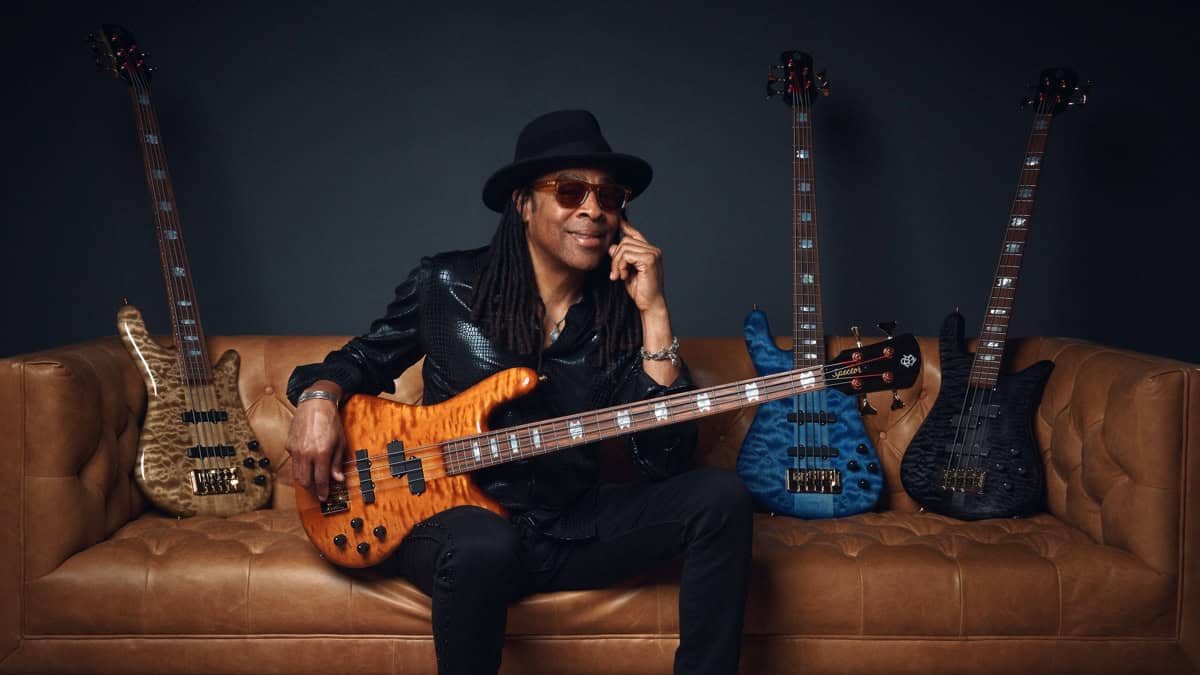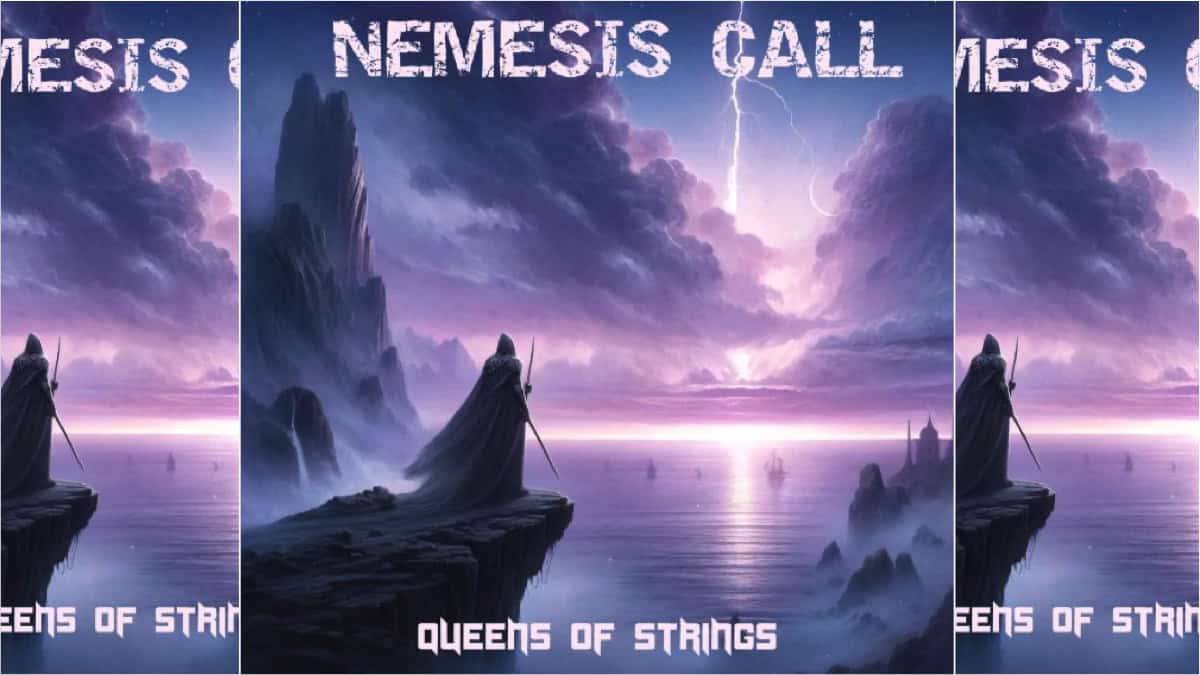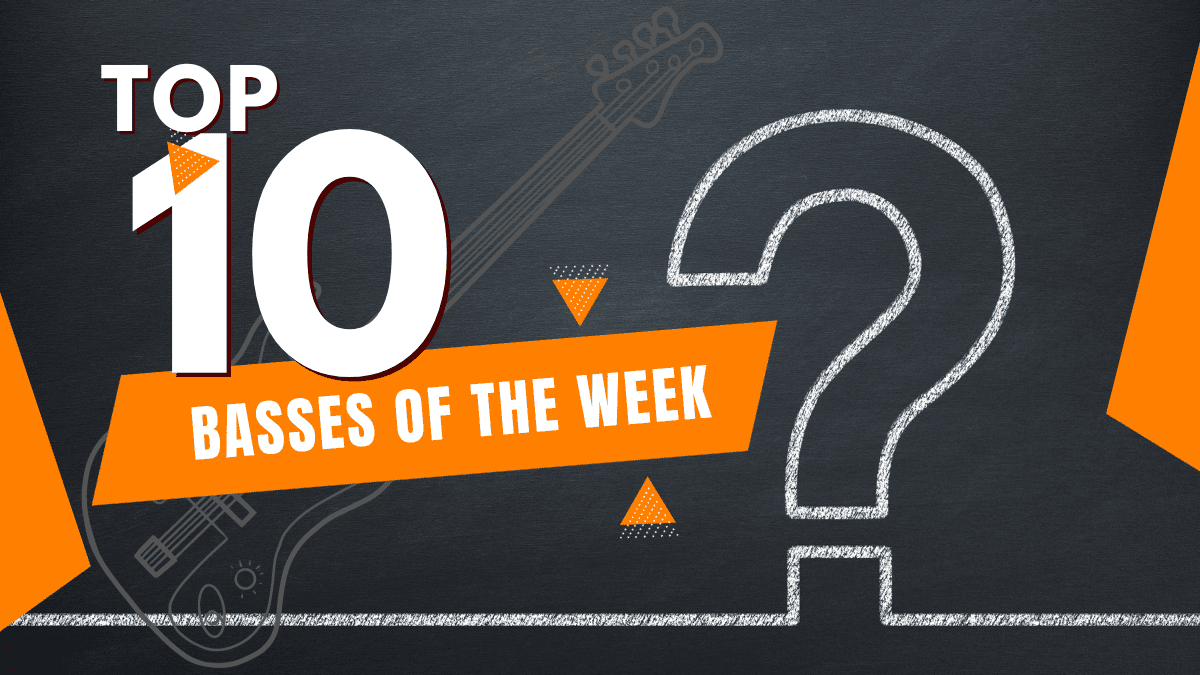Latest
Think When You Study, Feel When You Play by Igor Saavedra

 Think When You Study, Feel When You Play by Igor Saavedra… In my opinion, the topic about the proper state of mind to develop and to achieve when we play is such an important thing to discuss. In this article I will try to explore this matter based mostly on my personal experience as well as what I’ve studied in some texts.
Think When You Study, Feel When You Play by Igor Saavedra… In my opinion, the topic about the proper state of mind to develop and to achieve when we play is such an important thing to discuss. In this article I will try to explore this matter based mostly on my personal experience as well as what I’ve studied in some texts.
I think that the title of this article somehow says it all… In fact it reflects my personal opinion regarding this matter.
First of all, music is a language and we have to treat it as such. In accordance to this I will present a rhetorical question to begin:
When you are having a conversation with somebody about a specific topic, what do you think about? Are you thinking about articles, nouns, adjectives, pronouns, where are your tongue and lips located, when you have to swallow your saliva and when you have to breath so not choking while you speak, etc., or are you are just “TALKING”?
What we have to care about when we’re having a conversation (probably the most important and the only thing that should matter when we do it) is “WHAT WE WANT TO SAY OR WHAT WE NEED TO ANSWER”. That means if we are talking about the rising price of oil and why this is happening, what we are really doing is only focusing on that idea… the same thing happens when we write.
If it happens that we have to speak or write in a non-native language, like me here writing in English for you, we’ll probably have to think on the specific grammar and also make some conscious efforts and physical adjustments so being able to pronounce and express ourselves in a better way. The reason for that is because this foreign language is generally not fully acquired yet for most of the people, and the more we study and we practice it, the more automatized and “natural” it will gradually get.
Bottom line, we have to care about “saying” instead of caring about “speaking” or “talking”… The same happens with music!
When it comes to music, like in every aspect of human knowledge, there are two major mainstreams in relation to this…
The first point of view, mostly sustained by classically trained musicians, who do not necessarily develop themselves within this musical context (some exceptions apply), propose that once this musicians are on stage they must be fully conscious of every note they play so to be able to apply all they have learned proficiently and logically. When it comes to the Classical Music context I somehow agree with this position, because Classical Music has the tendency to assign the concept of “Creativeness” mostly to the compositional process (some exceptions apply)… and when it comes to “Playing the instrument”, Classical Music has the tendency to focus their attention on Virtuosism and Technical abilities (some exceptions apply) and also the concept of “Interpretation”, which is a very complex issue to discuss that will provide enough material for a fully new article! But what I’d like to say anyway is that in my opinion the concept of “Interpretation” on the Classical Music context has not much relation with the type of creativeness we talk about in Popular Music.
The second point of view is mostly sustained by popular musicians and quite often by Jazz oriented musicians (obviously some exceptions apply too) and I have to admit that this is the point of view that makes complete sense to me, mostly because of the kind of music I play and the kind of audience I usually play for… so I want to explain its fundamentals.
Even though “music is music no matter where”, I think we can agree with the fact that not every kind of music has to be addressed in the same manner. For example Popular Music generally asks for quite different aptitudes and characteristics from the musician while they are on stage compared with the Classical Musician, so the educational process has to be addressed quite differently too.
Popular Music bring us musicians with a much higher dose of freedom, in the sense that perfection is understood in a different way as compared to Classical Music… and that’s the reason why a singer “is allowed” to sing (as long as the singer does it intentionally), a little bit out of tune or to add some “roughness” and “dirtiness” instead of always singing with the pure and clean voice. Obviously, mastering this skill requires an enormous amount of technical abilities too. Popular Music audiences allow us to take more risks and also to somehow “make some little mistakes”… and generally forgive us if it appears evident that those small mistakes are coming not from unprofessionalism or laziness but from being fearless about taking risks and trying to go over our limits as musicians and expand the frontiers of our interpretation… and also will forgive us if we develop and show the ability to overcome those mistakes in an elegant and creative form.
A good example that I can provide is a Soccer Player… People usually love when great players, which with no intention of calling the attention for themselves, are always willing to take risks, (sometimes with the probability of hurting themselves) so to surprise and pass the defense of the other team and being able to score in benefit of their team… and also why not say it… to make the people who paid their tickets feel a little happier and move them out of their seats!
Within the context of Popular Music, Instrumental Music, where improvisation has a lot to do with it, is the best example to explain what I wanted to say when I wrote the title of this article.
The best Soccer players in history have lost penalty shots at the most important Championship Penalty Shoot-Outs…. Why?
As many of you know, I studied Physical Education before knowing that the bass existed, and that helped me a lot for many things related to music. Studies have been made to understand why talented Football players, the most talented in Football’s history as I said, lost some crucial penalty shots on Penalty Shoot-Outs that in other circumstances they would have never lost.
The results of those studies are outstanding, and they concluded that the crucial mistake was really made by the coaches when they tried to make these sport geniuses THINK… How?
Well, in the vast majority of the situations the coaches told these players “what to do” and “why to do it” right before shooting without training them before about that specific instruction during the previous week (which wouldn’t have made too much difference really). They said to them: “Listen, this goalkeeper is too tall and he’s not very good at stopping balls that go really close to the grass. Also studies have shown that he’s less effective when jumping to his left… so shoot a very low ball to his left.”
Big mistake!
When a really skilled Soccer player, a being that started kicking a ball when he was 2 years old, a being who went to the Soccer Academy when he was 4 years old and practiced, learned and automatized at the highest possible level everything he needed to know and to achieve for more than 10 years, and then started a professional career at 16 continuing to mature everything he learned and has been a professional for another 10 years or more… “The last thing you have to do is to tell him what to do in a circumstance like that where being intuitive and creative is what really matters.”
It really doesn’t matter what age you started to play music… but if you really did your homework, that means thinking and analyzing everything to the minimum detail when you were studying and practicing hard and proficiently for years and years and continue doing so, the last thing you need to do when playing and mostly improvising, is to THINK! The cerebellum is the brain structure that will address “thinking” here… in fact the cerebellum is also named in medicine as “The Little Brain”, and when it comes to creative behavior it will be the part who will take every decision better than your cortex and your consciousness ever will… but I repeat, this only works when you have done all your previous homework for years and years. So it’s a good moment to repeat the title of this article….
Think when you study… feel when you play…
It’s hard to define what it means to “feel” in this context… but in the first place I can certainly assure you that that means, “Not thinking consciously”. “Feeling” in this context means “Connecting with your feelings”, and also very importantly with “What you want to say” and also with “What you want to express” rather than thinking in Chords, Scales, Substitutions, Intervals, Techniques, Hand & Finger Positioning, Rhythmic Figures, etc.
If you start thinking while you play or improvise two things will happen. The first is that you should take into consideration that 99% of the players who have the tendency to do that also have the tendency to sound schematic and stiff while they’re playing and mostly when they’re soloing, are not really fluent, (rare exceptions apply). The second thing that will happen is that you are probably going to make a mistake exactly in the moment you stop feeling and connecting (metaphorically speaking) with the “Subject you were talking about” and tried to think on the parts and components that this subject was made of, and even worse, when you started to think on how to say what you were saying…
Once again, on stage do not try to speak, do not try to talk, just SAY!
See you on the next month’s article my friends!
Gear News
New Gear: Spector Doug Wimbish USA Custom Series Basses

Spector offers Doug Wimbish USA Custom Series basses…
Spector, a leading authority in bass guitar design, unveils two new Doug Wimbish USA Custom Series basses. Synonymous with bass excellence since 1987, Wimbish collaborated with Spector’s USA Custom Shop to create the DW-4 and DW-5 models, echoing the iconic instruments that have been favored heavily throughout his recording and performing career.
These signature basses faithfully replicate Wimbish’s originals, down to the smallest details like neck contours and nut widths. Customized EMG pickups, developed in collaboration with Wimbish, capture the distinctive sound that has shaped his monumental musical impact. These models invite players to explore the feel and response that have defined Wimbish’s signature style over the years.
Available in 4-string and 5-string versions, each model boasts unique features & finish options. The DW-4 comes in Amber Stain Gloss and Black Stain Gloss options, while the DW-5 offers Dark Blue Stain Gloss and Faded Natural Gloss. Every purchase includes a certificate of authenticity signed by Doug Wimbish. Wimbish comments, “Spector took the time to get every little nuance right, and that to me is dedication and being thoughtful enough to know ‘I want to nail it,’ and they did. I’m able to pick these instruments up for the first time and play them like I’ve already had them for years.”
For more information, visit spectorbass.com/doug-wimbish-usa-signature-series/.
Photo: Doug Wimbish, pictured with the new Spector Doug Wimbish USA Custom Series basses
Bass CDs
New Campaign: Alberto Rigoni, Nemesis Call – Queens Of Strings

Italian bass master and composer ALBERTO RIGONI is thrilled to announce his brand new project “Nemesis Call – Queens Of Strings”.
Nemesis Call – Queens Of Strings features a super talented drummer from Japan (TBA) and tons of female guitarists such as SAKI, Giusy Busetto, Alexandra Zerner (TBC) and many many others (TBA). Furthermore, Alberto has also launched a Fundraising Campaign for the project. 20% of the income will be donated to Lega del Filo d’Oro legadelfilodoro.it/it, an Italian association that helps deaf and blind children!
Alberto shares:
“Hello friends and music lovers! I’m Alberto Rigoni, an Italian composer and.. a BASS GUY! Between 2008 and 2024 I released 13 solo albums, spanning from progressive, rock, ambient to funky and experimental music, which also features contributions from musicians such as keyboard wizard Jordan Rudess (Dream Theater) drummer Gavin Harrison (Porcupine Tree) and Marco Minnemann (the Aristocrats), keyboardist Kevin Moore (ex Dream Theater), singer John Jeff Soto (ex Goran Edman (ex Y. Malmsteen), bassists Nathan East, Stu Hamm (Joe Satriani), Nik West (ex Prince) and many others. I’m also bass player for BAD As, Sunset Groove Society, Kim Bingham, The Italians bands and co-producer of Mistheria’s Vivaldi Metal Project.”
Alberto on the new project Nemesis Call:
“Even if my latest album “Unexpected Lullabies”, dedicated to my newborn Vittoria Parini Rigoni, will be released on June 4th, 2024, when Vittoria came to life I felt the need to compose new music (yes, I really can’t stop!!!!!). This time will be quite challenging because I’m willing to release an instrumental ambient/prog/rock/metal album, that will feature a talented and young drummer (TBA) and tons of female guitarists (that’s why I will call the album “Queens of the Strings”) such as Alexandra Zerner, YOKA and many others (TBA/TBC)). It won’t be easy to manage all such great musicians but I will make it!! Are you ready to face a new prog experience? The album will be released in Digipack CD and in high-quality digital format approximately at the beginning of 2025.”
The Fundraising Campaign:
As an independent artist, Alberto is looking for supporters who can help him reach the budget for the production (recordings, mix, mastering, artwork etc.) of this new album and has started this fundraising campaign that will end successfully on October 15th, 2024.
Get further information about Alberto Rigoni’s new project Nemesis Call Fundraising campaign at albertorigoni.net/nemesiscal
Bass Videos
Artist Update With Bassist Derek Frank

Bassist Derek Frank…
Many of you will remember the last time I chatted with Derek Frank was back in 2017. The main thing that impressed me was how busy Derek was and how he juggled playing with many huge acts.
Now, I am happy to hear that Derek launched a new album last March titled “Origin Story” where he digs deep into his roots and pays homage to Pittsburg.
Join me as we get caught up after all these years and hear the details about the new album, how Derek gets his sound, and his plans for the future.
Photo, Stephen Bradley
Featured Videos:
Visit Online:
www.derekfrank.com
www.instagram.com/derekfrankbass
www.youtube.com/derekfrankbass
www.facebook.com/derekfrankbass
Latest
This Week’s Top 10 Basses on Instagram

Check out our top 10 favorite basses on Instagram this week…
Click to follow Bass Musician on Instagram @bassmusicianmag
FEATURED @foderaguitars @bqwbassguitar @lecomptebass @xvector_basses @vuorensaku_guitars @phdbassguitars @meridian_guitars @sterlingbymusicman @ramabass.ok @overwaterbasses
Gear News
New Gear: Alberto Rigoni Signature Bass, the VPR5 by Gaetano Costanzo!

Alberto Rigoni Signature Bass, the VPR5 by Gaetano Costanzo!
Internationally renowned bassist ALBERTO RIGONI (soloist, BAD AS, Vivaldi Metal Project, TwinSpirits, etc.) is proud to announce the release of his signature bass VPR5 made by renowned Italian luthier Gaetano Costanzo!
The bass is entirely handmade in Italy, without the use of CNC or other machinery, and has rather special features. The VPR is a 5-string bass (but also available as a 4-string) with 30 frets, Seymour Duncan pickups, Music Man Alnico style, passive electronics (volume, tone and a switch to select series/parallel/single-coil mode), alder body, and American maple neck and fingerboard. Gotoh tuners that ensure perfect intonation. The bass is totally painted white (nitro finish) but other colors can be requested. The VPR has a weight of about 2.9 kg and suitable for any genre.
For more information contact Gaetanobass77@gmail.com or visit online at www.instagram.com/gaetanocostanzoluthier or www.facebook.com/GaetanoCostanzoLuthier

















